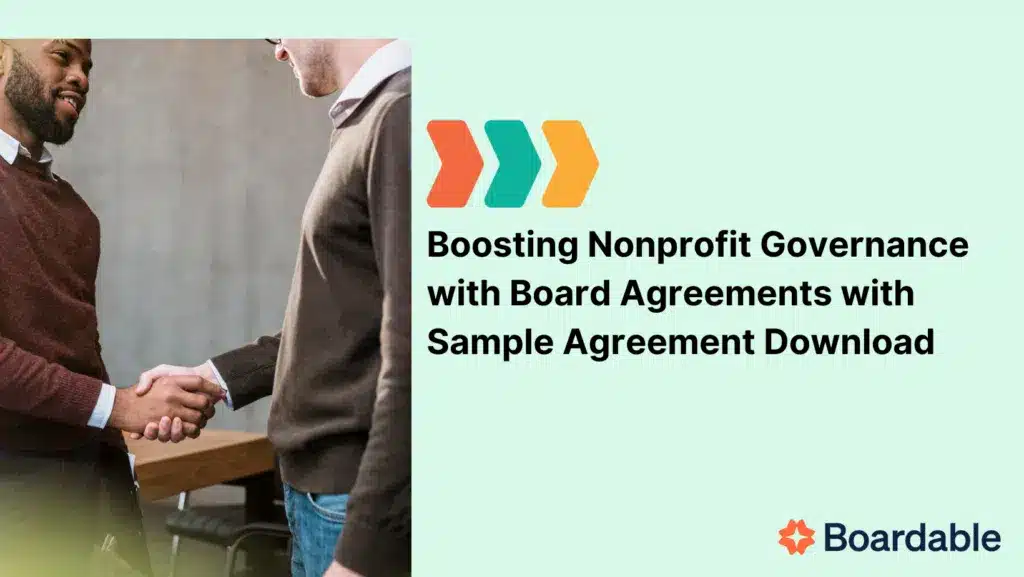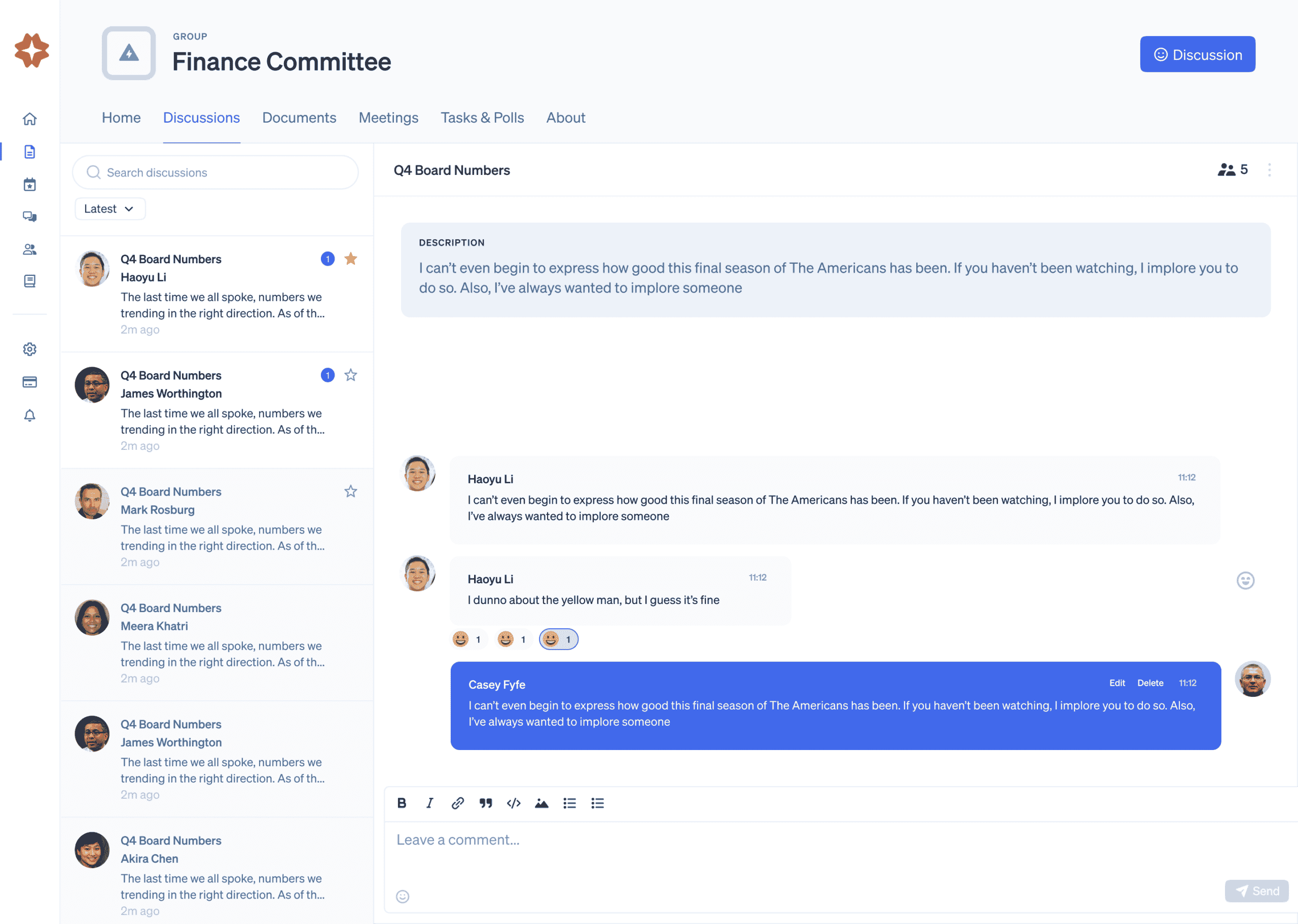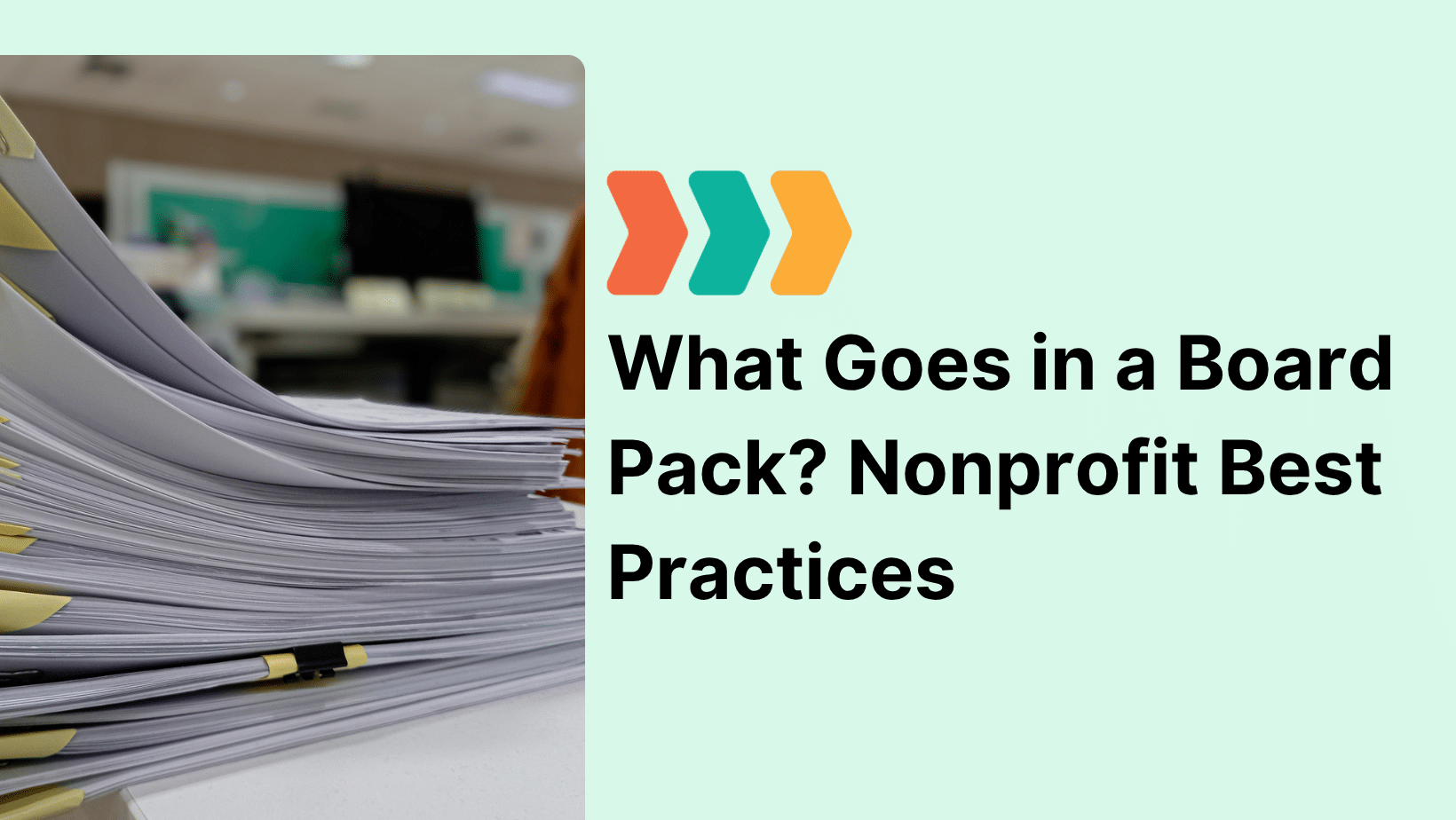Setting clear expectations and responsibilities is crucial in nonprofit governance. A board agreement isn’t just helpful; it’s a fundamental tool that defines the symbiotic relationship between board members and the nonprofit organizations they dedicate themselves to serving.
Should your nonprofit organization implement a board agreement? The answer is likely yes, and here’s why:
In this blog post, we’ll explore why a board agreement isn’t just a good idea — it’s essential. We’ll outline the significant advantages while acknowledging the challenges, helping you see why it’s paramount for almost every nonprofit.
What is a board member agreement?
Before we dive in, let’s explore a little further into what a board member agreement is. A board member agreement is a formal document that outlines the roles, responsibilities, and expectations of each individual serving on a nonprofit’s board. These agreements serve as a written contract between the organization and it’s board members, ensuring that everyone is on the same page regarding their duties and contributions. While not legally binding in the traditional sense, board member agreements play a pivotal role in maintaining transparency and accountability within the organization.
A typical board member agreement includes expectations around meeting attendance, financial contributions, committee participation, and even personal conduct. It also clarifies what board members can expect from the organization, such as access to financial reports or operational updates.
By detailing these expectations upfront, board member agreements can help prevent confusion or disputes down the road, fostering a more collaborative and productive environment. Ultimately, these board member agreements act as a governance tool, ensuring that both the board and the organization are working together toward the shared mission with clarity.
Advantages of a Board Agreement
Clarifying Expectations from the Get-Go
The most significant advantage of using a board agreement is the establishment of clear expectations from the start. By detailing the responsibilities and commitments expected from your board members, your organization can ensure all members are aligned with their duties. This clarity prevents misunderstandings and sets a professional tone from the outset, providing a sense of security. Not only is this clarity critical for current members to understand the expectations, but it also sets a standard for future members, fostering consistency in governance across different board terms.
Ramping Up Accountability
These agreements are crucial for accountability. They outline specific responsibilities, such as attendance, financial contributions, and active participation, essential for maintaining an engaged and effective board.
Streamlining Onboarding
Stepping into these roles can be daunting for new board members. A board agreement acts as a roadmap, reducing initial overwhelm and equipping new members with a clear understanding of their roles and expectations.
Enhancing Transparency
A board agreement fosters transparency, outlining not just the duties of the board members but also what they can expect from the organization. This clarity is critical for trust and helps strengthen your nonprofit’s credibility and integrity.
Legal and Ethical Safeguards
These agreements establish legal and ethical standards for keeping your organization’s operations above board and within legal confines.
Navigating the Challenges
While board agreements are indispensable, they come with their challenges:
Avoiding One-Size-Fits-All Solutions
A board agreement is a fundamental tool for defining the roles and responsibilities of board members in a nonprofit organization. However, it’s crucial to recognize that each nonprofit has its unique structure, culture, and mission, which means a one-size-fits-all approach may be ineffective. We recommend the following steps to craft the best board agreement for your organization’s unique needs. By following these steps, you can create a robust board agreement that not only formalizes governance practices but also supports and enhances the governance structure of your nonprofit.
- Documenting Needs and Governance Structure: Begin by thoroughly assessing your organization’s current governance framework and specific needs. This foundational step helps tailor the board agreement to align with your nonprofit’s operational and strategic priorities.
- Engaging Stakeholders: To ensure the agreement reflects various perspectives, include diverse stakeholders in the development process. This engagement should involve board members, management, and external advisors who can offer different insights and contributions.
- Drafting and Reviewing: Based on the insights gathered, create an initial draft and modify it to address all relevant aspects of board governance. This process allows for continued refinement and precision in articulating the roles and responsibilities.
- Obtaining Legal Review: Before finalizing the board agreement, have it reviewed by a legal professional specializing in nonprofit law. This ensures compliance with legal standards and safeguards against potential legal issues.
- Implementation and Regular Reviews: Implement the agreement with a formal introduction to all board members. Establish a routine for regularly reviewing and updating the agreement to keep it relevant as your organization evolves and adapts.
Maintaining Flexibility
Be sure to balance clear guidelines with the flexibility to adapt to unforeseen circumstances.
Preventing Conflict and Over-Formality
Developing a board agreement requires careful consideration to avoid creating potential conflicts or deterring prospective board members. If the agreement comes across as overly demanding or its tone is perceived as overly bureaucratic, it could lead to dissatisfaction or even discord among current and future board members. Additionally, a stringent agreement might make the board role seem less like a voluntary commitment and more like a contractual obligation, which could adversely affect the motivation and engagement of board members.
Carefully crafting a board agreement emphasizing collaboration, respect for volunteerism, and adaptability ensures that it is a foundation for effective governance rather than a source of conflict. This approach enhances the board’s functionality and preserves its members’ enthusiasm and commitment, which are critical drivers of nonprofit success.
Ensuring Enforcement
Enforcing a board agreement can be challenging, especially if there are no precise mechanisms or efforts to implement the rules set out in the document. Without enforcement, the board agreement might be rendered ineffective, serving as little more than a formality.
We recommend setting clear enforcement protocols, a strong accountability enforce board agreement. These elements ensure that the board agreement remains a powerful tool for effective governance rather than just a checklist of expectations.
Boardable: Your Partner in Effective Board Management
At Boardable, we understand the nuances of nonprofit board management. Our platform featuring custom board data collection is designed to track vital information like attendance and engagement, making it easier to maintain and enforce board agreements.
With Boardable, you’re not just adopting a tool but embracing a partnership that empowers your board to operate with greater effectiveness and alignment.
Final Thoughts & Next Steps
Implementing a board agreement significantly benefits nonprofits by setting clear expectations, enhancing accountability, and ensuring legal and ethical operations. Consult with legal counsel, consider a board retreat for in-depth discussions, and remember: a well-crafted, thoughtful board agreement is foundational for effective governance.
Remember, we’re not lawyers, but we definitely recommend that every nonprofit adopt a board agreement — it’s essential for clarity, accountability, and overall effectiveness. Are you interested in seeing how Boardable can streamline your board’s operations? Visit us here to learn more.




